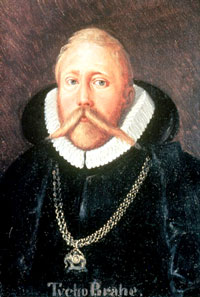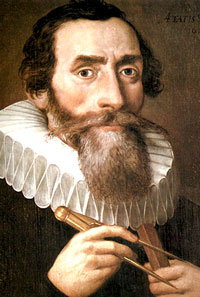Tycho Brahe’s time – and the present
Tycho Brahe was important in his time and in our time. Without Tycho's astronomical measurements we would not have the prosperity that we have now.

Tycho Brahe, nobleman and astronomer, born in 1546 in Skåne, then a part of Denmark; he never visited Sweden.
In 1575 Tycho Brahe was entailed the island Hven in the Øresund by King Frederik II. The farmers on the island came with the gift, which they resented, especially as they had never had a lord of the manor before. But Tycho built a beautiful castle, Uraniborg and built astronomical instruments according to his new ideas. With a large staff of both Danes and foreigners, who wanted to study with the famous astronomer, he observed the positions, the locations in the sky, of a thousand stars and from there all the planets, especially Mars.
This continued for twenty years and cost between one and two percent of the crown's income, which was such a large investment in science, that it had never been seen before neither has it been seen since, anywhere in the world. It was not until a hundred years later that something similar was seen with the scientific societies in London and Paris.

Johannes Kepler (December 27, 1571 – November 15, 1630) was a German mathematician, astronomer and astrologer, and key figure in the 17th century scientific revolution.
After Tycho's death in 1601
After Tycho's death in 1601 in Prague his assistant, Johannes Kepler, got access to the incredibly accurate positions. He was a genius mathematician and discovered that the planets revolved around the sun in ellipses, not in circles, as had been believed since antiquity.
Isaac Newton found a deep understanding of Kepler's laws of planetary motion. In 1687 he gave a mathematical-physical description, which was of critical importance for the technological development that followed. Newton's laws and concepts for speed, acceleration, mass, force and energy were new and very accurate, and they apply in both the heavens and on Earth. Engineers use them in the construction of satellites and the machines we are dependent upon every day.
Without Tycho Brahe's precise observations of the positions of the stars and planets the technological development would not have started so early.
Written by astronomer dr. scient. Erik Høg, emeritus at the Niels Bohr Institute.
